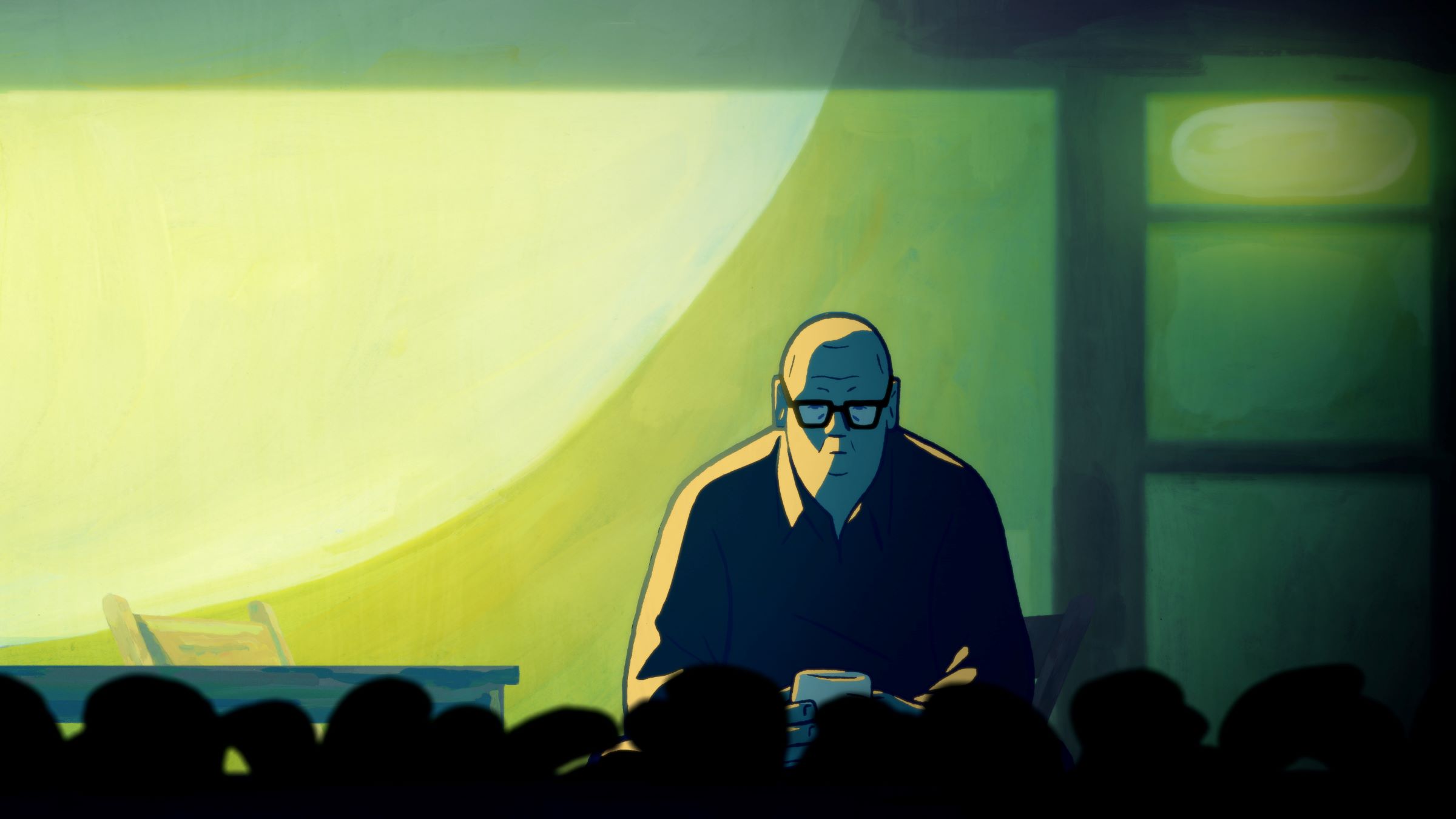Written and directed by Alec Green and Finbar Watson, and narrated by Hugo Weaving, Teacups is a visually stunning animation exploring the life of Don Richie – The Angel of the Gap – whose interactions with countless suicidal individuals saved the lives of hundreds of people. The film asks, can a simple act of kindness save a life?
Teacups has won a number of awards including Best Animated Documentary at the Factual Animation Film Festival and Best Animation at the St Kilda Film Festival.
Screen NSW spoke to Alec and Finbar about what motivated them to tell Don’s story.
“Don’s story encourages people to talk about their mental health and reach out to friends and family. However, it is quickly becoming a folk tale, simply put, we hope Teacups has played a part in keeping Don’s story alive.” Alec and Finbar
Read the full interview about Teacups below.
Teacups tells the incredible true story of Don Richie, who for almost 50 years, would approach people contemplating suicide at the edge of a cliff, just 100 feet from his home. Can you tell us about why it was important to you to tell Don’s story and honour his legacy?
We both grew up close to where Don lived, but it wasn't until we were in our twenties that we learned of Don's story. At the time, we had just completed a documentary for The Guardian and were anxiously searching for our next project. We kept asking ourselves, how have we not heard about this, and why hasn't this been told on film? As we learned more about Don's life and mental health, we became increasingly aware of how important his story is. An average of nine Australians die by suicide each day, and when we pair that thought with how many people are thinking about it, whether that be in our city or on our street, it becomes clear that Don's story needs to be remembered.
Teacups is very cleverly told from Don Richie’s perspective. What kind of research did you do to achieve this and how involved was Don’s family in the making of Teacups?
We did extensive research into Don's life and topics related to mental illness before we put pen to paper. We focused on ensuring we captured Don's character and treated mental illness with the sensitivity required. Too often in films, suicide and mental illness are used as a narrative crutch or to shock the audience for purely dramatic purposes. To avoid that, we took part in suicide prevention courses and mental health workshops. We also interviewed several of Don's surviving family, who generously welcomed us into their home and offered us photos, information, and insights into who he was. When we had written the script, we passed it to the family for their approval.
Iconic Australian actor Hugo Weaving narrates Teacups as Don. How did he become involved with the project and what was he like to work with?
As all filmmakers do, we had a fool's hope that a great Australian actor would join the team to voice Don. We were pinching ourselves when Hugo said yes and even more so when we were in the studio. He absolutely nailed what we were after in Don's character - a balance of warmth, guilt, and gravity – and brought meaning to certain lines that we hadn't seen. It was a great collaboration that we won't forget anytime soon.
Teacups has a beautiful colour palette. How did you develop the visual style of the film?
To make Teacups, we collaborated with the incredible andmapsandplans animation studio in Dublin, Ireland. Their team, headed by Alan Holly, has a clear understanding of storytelling and how it should be emotionally expressed through animation.
Alan Holly (art/animation director):
With the subject matter and factual nature of the story, it was really important to get the tone right. For this, the approach was to keep things simple and uncluttered, with minimal and hopefully appealing designs for the characters and big, broad use of colour with a tactile quality through the use of paint to tell the emotional story as atmospherically and directly as possible. In many ways, there was a natural progression from our past projects with more inclusion of paint and pencil alongside digital elements, with all the backgrounds painted in gouache by Muireann Mills and effect animation drawn in pencil by Deither Kirby Jay. Alec and Finbar had a very clear vision for the mood of the film, and this came through well in the script and references they had, so we were on the same page from early on, and everything flowed pretty naturally from there.
Teacups has won several awards this year including the Yoram Gross Award for Best Animation at this year’s Sydney Film Festival and has qualified for the 2024 Oscars. Congratulations! Can you share with us what you plan to do next with the film?
It goes without saying that it would be great to be nominated for an Academy Award, but our goal with Teacups was always to get Don's story in front of as many people as possible. We have been fortunate enough to play at festivals all over the world and even more fortunate to receive emails from strangers telling us how much the film had impacted them. As such, we have just released Teacups on YouTube with the hope that more people will see it.
What do you hope audiences will gain from watching Teacups?
Don’s story encourages people to talk about their mental health and reach out to friends and family. However, it is quickly becoming a folk tale, with many Australians having heard of him but few knowing what he did. Simply put, we hope Teacups has played a part in keeping Don’s story alive.
Image credit: Still image from Teacups.
